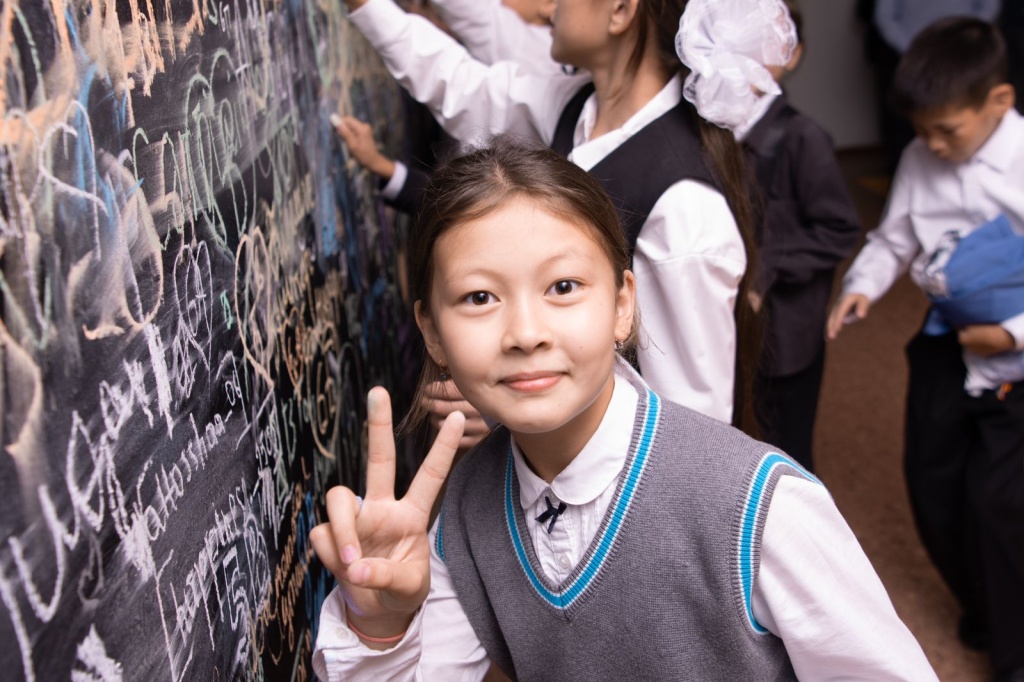Teacher: The Driving Force Behind Equal Access to Quality Education — Anuar Zhangozin
In his 2019 Address, President Kassym-Jomart Tokayev highlighted a pressing issue — the growing disparity in the quality of education between urban and rural schools. The main cause: a shortage of qualified teachers in rural areas.
In response, Nazarbayev Intellectual Schools (NIS), in partnership with the Fund for Sustainable Development in Education, launched the initiative “Rural School: Powered by NIS” to ensure equal educational opportunities for all children in Kazakhstan.
In 2022, with the support of the Qazaqstan Khalqyna Foundation, the initiative expanded into a large-scale program titled “Developing the Capacity of Rural Hub Schools.” Today, more than 140 schools are part of the project, with plans to reach 200 schools by 2024.
We are not merely equipping schools with resources — we are building an environment where every child has access to quality education. A core component of the project is the professional development of teachers to align the educational process with modern standards.
A comprehensive study conducted by NIS identified the key challenges and needs of rural schools across Kazakhstan. To paint a full picture of the current landscape, surveys were conducted with 300 school leaders, 10,000 teachers, 4,500 students, and 4,700 parents.
Among the main challenges faced by rural educators are the need to deepen subject knowledge, develop clear professional growth pathways, and master modern digital technologies. Another significant issue is the difficulty of integrating successful peer practices into their own teaching.
Teachers also need support in developing skills such as self-reflection, performance analysis, student achievement monitoring, and lesson planning — all crucial elements of a student-centered approach, where each learner has individual goals and expected outcomes.
Additionally, the project emphasizes improving professional communication among teachers, administrators, and parents, as well as the importance of constructive feedback.
These findings shaped the framework for targeted methodological support and helped establish effective collaboration with educators and school leaders, ultimately improving teaching quality in rural areas. Strengthening teachers’ professional skills helps them navigate curricula confidently, tackle complex topics in depth, and design tasks that unlock each student’s potential. Special attention is given to developing functional and digital literacy, research abilities, and emotional intelligence.
In 2024, the project achieved the following:
3,885 teachers engaged
256 events conducted, including:
44 internships
75 on-site training sessions
This comprehensive effort to enhance teacher qualifications and modernize schools has delivered strong results. Monitoring of student performance showed significant academic gains: +13.8% in Grade 4 achievement; +5.8% in Grade 8 achievement.
At the same time, growth areas were identified: Grade 4 students showed difficulties with logic and geometry, while Grade 8 students struggled with algebra and natural sciences. It is essential that teachers actively use monitoring data to inform their teaching and improve student outcomes.
Building on these results, we are developing the next phase of our strategy. It includes continuous professional development for teachers, the creation of community centers in rural areas, provision of high-speed internet to schools, and strengthening professional networks.
Our ultimate goal is to build a unified educational ecosystem where teachers across Kazakhstan can share experiences and innovative practices, working together to raise the quality of education in every corner of the country.




